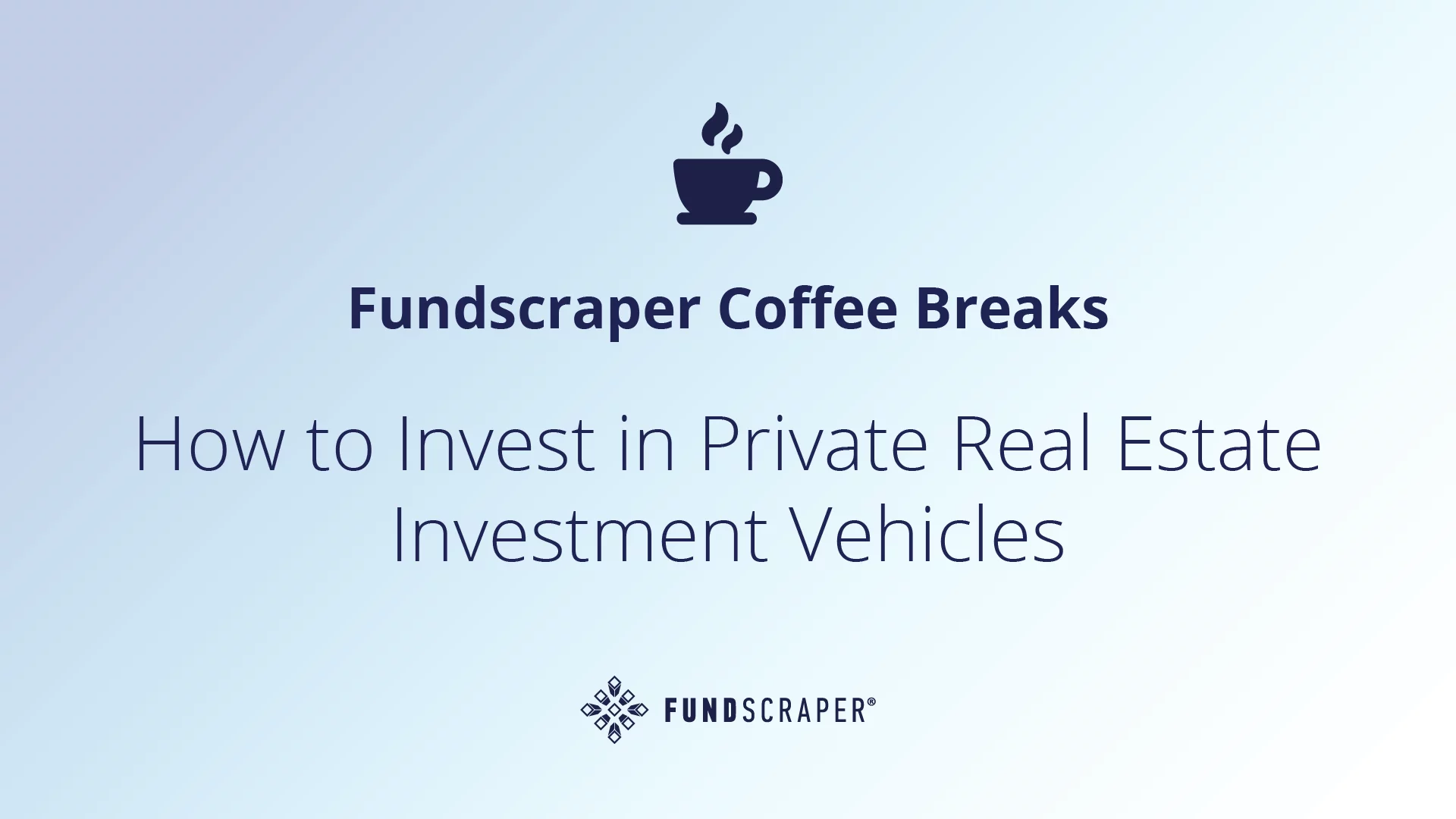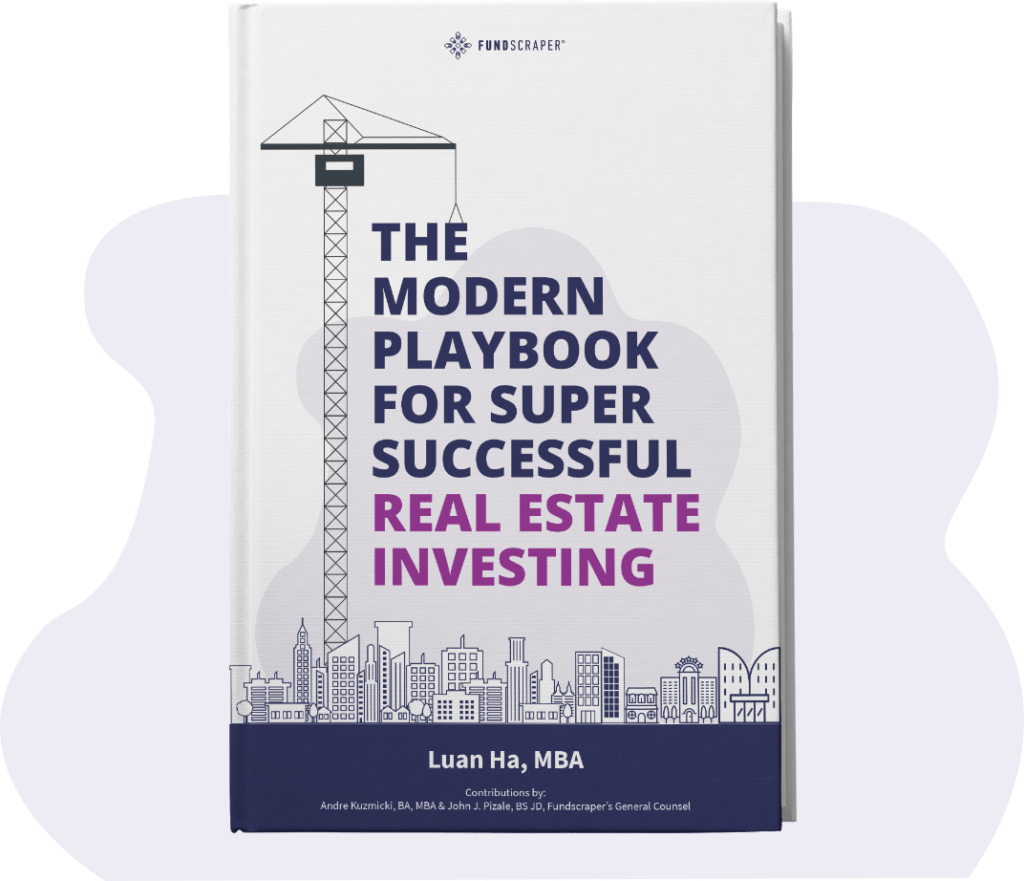Think you can’t afford a real estate investment? Think again. Worried now isn’t the right time to add another property to your portfolio? It is possible, and we’ve got you. Even if the extent of your financial experience is a high-yield savings account, you can should consider diversifying your portfolio with real estate backed investments. Fundscraper will teach you how the 1% invests.
Key Points
- Think you can’t afford a real estate investment? Think again. Worried now isn’t the right time to add another property to your portfolio? It is possible.
- Too often, the traditional portfolio mix fails to achieve optimum performance because of the under-representation of direct real estate investing.
- Every investor’s goal should be to build a more perfect portfolio designed for maximum rewards and minimum risk.
The case for diversifying your investment portfolio
Too often, the traditional portfolio mix fails to achieve optimum performance because of the under-representation of real estate secured investing. Our thesis is simple: You’ll likely be more successful if you diversify into solid real estate investing, while at the same time maintaining a higher degree of safety by reducing correlation to public equities.
Being risk averse is a good thing. We’re risk averse, too! Most people are naturally risk averse. We’re drawn to what we know and hesitant of what we don’t know. The average person knows more about traditional investments like mutual funds, publicly traded stocks, GICs, and bonds, so that’s where they put most of their money. But the investment environment, especially in the stock and bond markets, can be volatile. If you’re risk-averse, you should know that limiting your investments to only the public markets can be an investing risk itself due to a lack of diversification and highly correlated volatility.
Investing limited only to public markets risks the chance of devastation if the “bubble” precipitously bursts based on factors beyond our control, such as environmental disasters, world events, inflation, or fluctuating interest rates. Common sense tells us to spread our money out into a diversity of pots, hoping the ups and downs will balance out and we will enjoy a somewhat stable, if unspectacular, return on our investments. As such, it’s a good idea to consider diversifying into real estate backed investing.
Every investor’s goal should be to build a more perfect portfolio designed for maximum rewards and minimum risk.
Why is real estate an essential part of an investment portfolio?
Real estate secured investing fluctuates quite distinctly from other conventional asset groups like stocks and bonds. For instance, real estate is tangible and is what lawyers call an “immovable.” It’s not a substitute that should take the place of other assets in your portfolio, but rather an asset group all its own.
Unlike stocks and bonds, real estate trades privately based on local factors such as location, supply, demand, and investment lifespan. It is often scarce, particularly in growing areas, which translates to a history of appreciating value. In your portfolio, real estate investing is a channel to investments backed by real hard assets providing a regular income stream and long term growth coupled with the benefits of diversification.
You can enjoy superior performance and diversity at the same time. This is especially true if you’re maintaining and growing the value of your retirement portfolio. Smart real estate investing can enhance the prospect of enjoying the benefits of things like reasonable leverage and the miracle of compound interest over an extended period of time.
You can add real estate to your portfolio without actually buying property.
What are the benefits of real estate investment?
Meaningful real estate investing is essential for a well-rounded and successful investment package, and the benefits go well beyond diversification. The most obvious benefits of real estate investment are the potential financial advantages. Real estate can earn attractive stable monthly returns based upon regular fixed income like cash flow streams over a set time frame. Speaking of tangibility, that’s another benefit: Real estate is a hard permanent asset that can be securitized. It has value, and you can calculate that value based upon appraisals and analytical techniques different from techniques used on publicly traded securities like stocks and bonds.
Take advantage of having solid real estate investing as a meaningful part of your portfolio. It’s a self-evident way to enjoy risk-adjusted returns and balance out the volatility and unpredictable fluctuations in public securities markets, both domestic and international. It works best when you can invest for the longer term while maintaining a high degree of safety through careful management.
Other benefits of real estate investment to note include:
- The ability to take advantage of leverage
- Tax deductions
- A chance to create added value
- Professional management of the property in larger asset pools
What is the 20% rule of investing?
Most of us never get a chance to participate directly in a major real estate project — usually grabbed up by big players, like private equity firms, banks, insurance companies, pension funds, and government institutions. We are mostly left to public mutual funds, real estate investment trusts (REITs), exchange traded funds (ETFs), and the like.
Consider the experience of and the lessons to be learned from the Yale University Endowment, which is credited with an enviable investing track record in North America, having a current value in the range of $30 billion. The fund is known for its “20% rule” which has historically allocated up to 20% be invested directly in private markets, including real estate (1) (2) (3).
Notes:
(1) https://investments.yale.edu/about-the-yio
(2) https://investopedia.com
(3) https://origininvestments.com
*Historical returns are not indicative of future results. Returns are never guaranteed. Always seek professional financial and tax advice before investing








